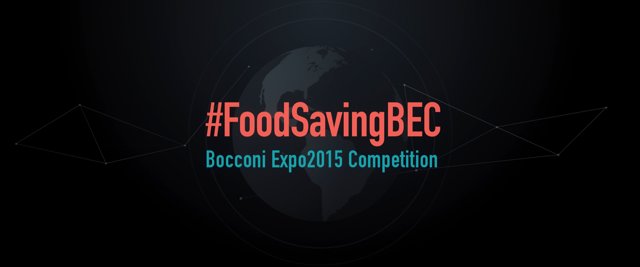Di Francesca Davoli
E’ un hashtag a identificare il concorso indetto dall’Università Bocconi di Milano, in collaborazione con Expo2015, volto a selezionare e formare 200 giovani ambasciatori sul tema dello spreco alimentare.
In Italia, le cifre dello spreco alimentare ormai sono di pubblico dominio, e negli ultimi mesi sono state portate alla ribalta da numerose iniziative ed eventi. Solo per citarne alcune ricordiamo che il tema centrale della Settimana Europea della Riduzione dei Rifiuti 2014 era proprio lo spreco alimentare, e che qualche settimana fa il Ministero dell’Ambiente ha dedicato un’intera giornata alle politiche a alle esperienze sul tema, cogliendo così l’occasione per presentare la Carta di Bologna.
Ma evidentemente, 1,3 miliardi di tonnellate di cibo commestibile sprecato ogni anno, corrispondenti a 4 volte la quantità di cibo richiesta per nutrire 868 milioni di persone che soffrono la fame continuano a preoccupare non solo organizzazioni sovranazionali quali la FAO, la Commissione Europea e il Programma Alimentare Mondiale (PAM) ma anche il mondo accademico.
Sensibilizzare i giovani su questa tematica, aumentare la loro consapevolezza del problema e spronarli a ricercare soluzioni creative per affrontarlo diventa una priorità se si vuole cambiar rotta. L’Università Bocconi di Milano ha quindi pensato, per stimolare la partecipazione dei ragazzi, di indire il concorso #FoodSavingBec. L’iscrizione è gratuita e aperta fino al 31 Gennaio 2015: unico requisito è quello di essere uno studente iscritto a un qualsiasi corso universitario, indipendentemente dalla nazionalità degli studenti e dall’ubicazione geografica dell’università. I partecipanti devono registrare un video di presentazione in inglese, della durata massima di 90 secondi, nel quale spiegano le ragioni per le quali vorrebbero far parte di un progetto volto a prevenire e combattere lo spreco alimentare. 10 dei 200 posti in palio verranno assegnati tramite il voto online dei video sottoposti sul sito, mentre i restanti 190 verranno selezionati da una giuria. I vincitori avranno quindi la possibilità, fra il 24 Giugno e il 1 Luglio 2015, di confrontarsi con esperti della FAO, del PAM e della Commissione Europea attraverso la partecipazione a seminari, dibattiti e laboratori. Verranno poi suddivisi in 50 squadre che lavoreranno per proporre soluzioni creative al problema.
Lo scopo ultimo però rimane quello di non abbassare la soglia di attenzione sul tema dello spreco alimentare, e di fare in modo che questi 200 ragazzi diventino dei portavoce autorevoli presso i loro compagni e non solo, promuovendo una cultura anti-spreco.
#FoodSavingBEC Bocconi Expo2015 Competition
It ‘an hashtag that identifies the competition organized by the Bocconi University in Milan, in collaboration with Expo2015, designed to select and train 200 young ambassadors on the issue of food waste.
In Italy, the figures of food waste are now of public domain, and they have recently been brought to the forefront of many initiatives and events. Just to name a few, the central theme of the European Week of Waste Reduction in 2014 was food waste, and a few weeks ago, the Italian Ministry of Environment has devoted an entire day to the policies and best practices on the topic, thus reaping the opportunity to present the Bologna Charter.
However, 1.3 billion tons of edible food wasted every year, corresponding to 4 times the amount of food required to feed 868 million people suffering from hunger continues to worry not only supranational organizations such as the FAO, the European Commission and the World Food Programme (WFP), but also the academic world.
Raising awareness on this issue, increasing the understanding of the problem and encouraging youngsters them to seek creative solutions to address it becomes a priority to change course of things. The Bocconi University in Milan has therefore thought to stimulate the participation of young people by holding the #FoodSavingBec contest. Registration is free and open until January 31, 2015. The only requirement is to be a student enrolled in any college course, regardless of the student’s nationality and the geographical location of the university. Participants must record a video presentation in English, lasting up to 90 seconds, in which they explain the reasons why they would like to be part of a project to prevent and combat food waste. 10 of the 200 seats available will be awarded through an online vote of the videos submitted on the site, while the remaining 190 will be selected by a jury. The winners will have the opportunity, between June 24 and July 1 2015, to discuss the issue with experts from FAO, WFP and the European Commission. They will participate in seminars, debates and workshops and will then be divided into 50 teams that will work to propose creative solutions to the problem.
In any case, the ultimate goal remains to keep the threshold of attention to the issue of food waste high, and to make sure that these 200 youngsters become influential spokespersons among others by promoting a culture of anti-waste.

